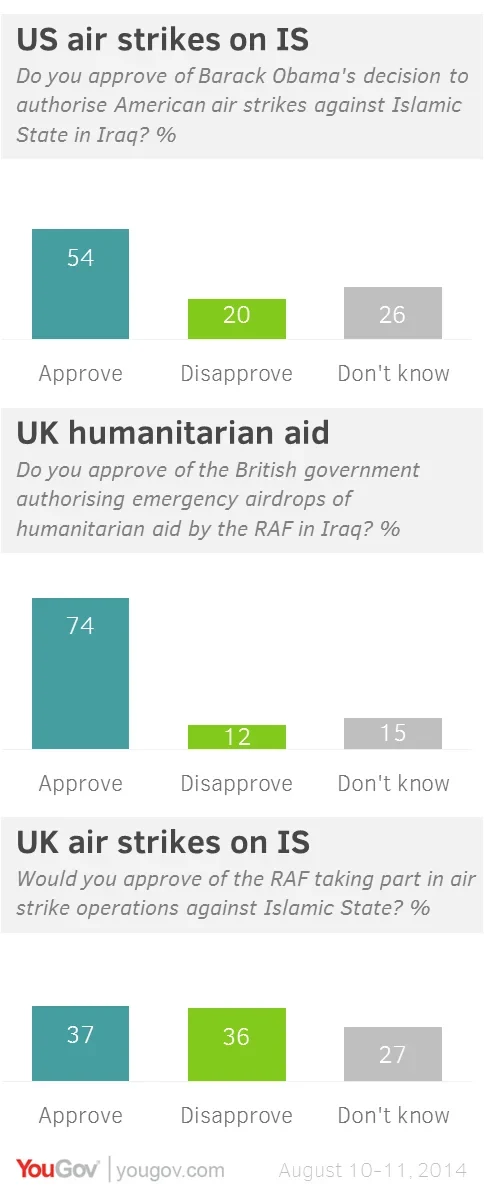54% of British people approve of US air strikes against Islamic State militants in Iraq – but they are divided over British involvement in any military effort
President Obama has authorised targeted air strikes in Iraq against Islamic State (IS) militants, formerly known as ISIS. The president said the US would act “carefully and responsibly to prevent an act of genocide”, referring to the massacre of Yazidis, Christians and other religious minorities by IS for their faith. Iraq’s human rights minister accused the group of killing at least 500 Yazidis – an ancient religious group who combine Zoroastrianism, Christianity and Islam – and burying some alive.

The casualties have led to international outcry, and British MPs have called on David Cameron to recall parliament to debate the appropriate response.
A new YouGov survey for The Sun finds that 54% of British people approve of President Obama’s authorisation of American air strikes against IS in Iraq to prevent the killing of religious minorities and to protect American personnel in the region. 20% disapprove and 26% are unsure.
Last summer, British people opposed the US carrying out missile attacks against Syria by 47-25%.
So far Britain has only agreed to drop humanitarian aid, in the mountainous area where fleeing Yazidis are trapped. By 74-12% British people approve of deploying the RAF to assist with this effort.
However the public remain are almost evenly divided over whether the RAF should take part in air strikes against IS. 37% approve, 36% disapprove. This is much closer than public sentiment over last years calls for British strikes against Syrian military targets, where a clear majority disapproved.
Lord Dannatt, who is leading the call to reconvene parliament, said the UK has “some culpability” for the breakdown of Iraq. YouGov’s survey finds that the decision to send troops into Iraq to overthrow Saddam Hussein attracts the most criticism compared to other recent British military interventions. 50% say it worsened the situation, compared to 38% for intervening in Afghanistan, 32% for supporting rebels in Libya and 17% for not intervening militarily in Syria – perhaps explaining the relatively high support for re-engaging in Iraq.
Image: PA









